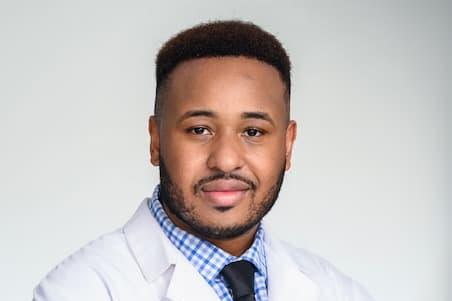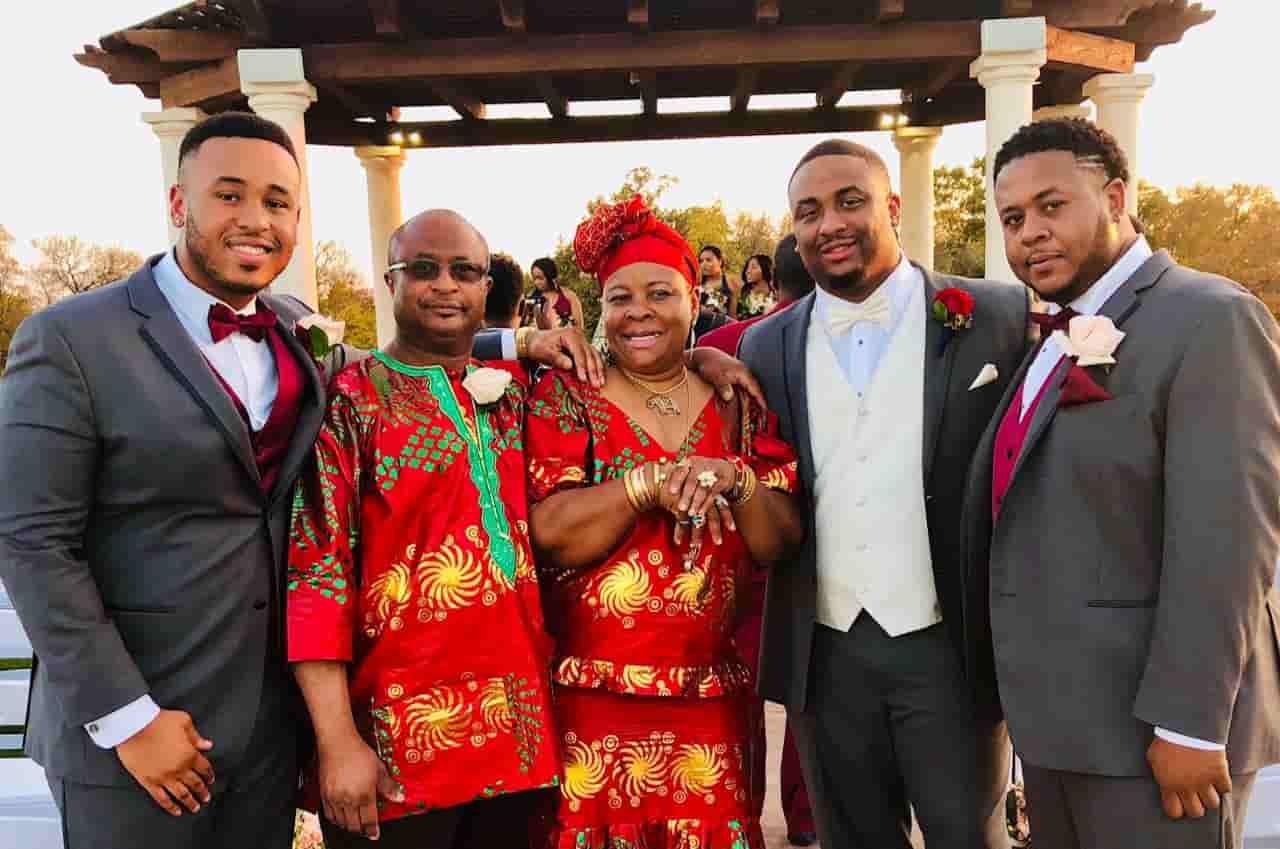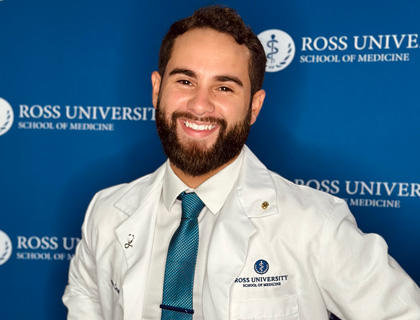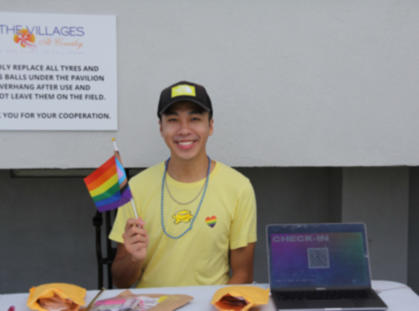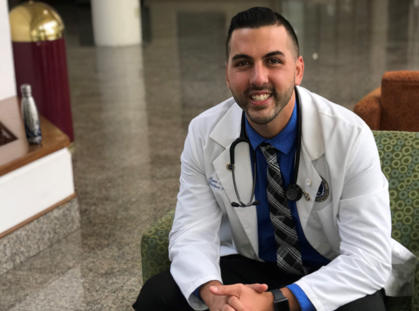The day that Ross University School of Medicine (RUSM) student Darrin Jalloh ‘22 got a phone call from the Internal Medicine program at Mount Sinai Hospital in Chicago, Illinois, was one of the most monumental days of his life. “I was so surprised; I almost went into shock. When I got the call, it was January 2022, much earlier than I was expecting. I was about to do another interview in five minutes. I couldn’t believe I was at the end of a stressful process. It was such a relief! I was so excited to secure a position at such a highly regarded program before Match Day. It still feels surreal,” says Jalloh.
On the road to residency—students waiting to match
Years of medical training and months of applications and interviews for medical students culminate with Match Week. Held the third week of March annually, students learn whether they are accepted into a residency program, discover where they will be trained, and in what field of specialty. On Match Day, the National Resident Matching Program® (NRMP®) calculates results and releases information to candidates who have earned a spot in a program, based on their preferences. Pre-match selection means a residency invitation could be extended at any time after an interview. Once pre-match candidates evaluate and accept an offer, they withdraw from the NRMP match cycle—and look forward to starting their residency.
Jalloh is grateful to be considered for a program before Match Day. “That’s a process that I didn’t have to wait for! I’m flattered that the program reached out to me first. It was one of my top choices.”
Beginning the application process in September 2021, Jalloh applied to 149 programs, including the program at Mount Sinai which resulted in his first interview in October. “I had gone to six or seven interviews by the time I heard back from Mount Sinai in mid-January 2022.”
Currently completing elective rotations at Mount Sinai, he was impressed by the hospital and the residency program. Jalloh appreciates the dedication of the staff and the focus on teaching and learning. In addition, the hospital serves a large, underrepresented minority population, something that Jalloh was seeking in a program. “The interviewers liked my personality and my determination—and my degree from RUSM—so, it was a match.”
Encouragement from his parents led him to medical school
The son of immigrants, Jalloh is the youngest of three children born in the U.S., and part of the first generation educated here. When his parents emigrated from Liberia to a suburb of Dallas, Texas, they couldn’t imagine that their son would eventually attend medical school. “Education was limited in their country, so my parents wanted me to make education my number one priority. They’re pretty much over the moon that I secured a residency even before Match Week. My Dad is my role model—he came to the U.S., got a job washing dishes, then studied to become an engineer. He never gave up, and neither did I. I’m going to be the first doctor in the family.”
Jalloh became interested in the functioning of the human body after a trip to the emergency room for a sprained ankle at age eight. Later on, he attended Texas Tech and majored in molecular biology before coming to RUSM. A less than stellar score on the MCAT exam didn’t discourage him from aiming for med school. After completing Medical Sciences, Jalloh completed his third-year core rotations in the U.K., but always wanted to return to the U.S. to practice Internal Medicine. “I like the idea of being able to experience multiple specialties; you never know what you’ll encounter day-to-day, and you’re always learning something new.”
His medical education prepared him for the future
Jalloh believes his medical education from RUSM gave him the tools to succeed. “RUSM helped me to be a confident practitioner of medicine, with the skills to manage and treat patients’ conditions. I had the academic resources and personal support I needed to prepare for a career as a physician. My RUSM education helped me to be flexible and ready for almost anything. I want my patients to know I’m here for them and that their health is my biggest concern.”
Optimistic about the future, Jalloh’s three-year Internal Medicine residency program at Mount Sinai will begin in July 2022. After residency, he hopes to move on to a cardiology fellowship. “I see a high rate of cardiovascular disease in minority populations. I want to practice in underserved areas and make a difference for patients with heart health education.”
Advice for matching
How can med students who want to match stand out from the crowd? Jalloh advises being confident in your accomplishments and potential as well as cultivating patience in the match process. “There will be times where you see others getting interviews and you become worried and discouraged. Remember that you worked hard to get to this point in the journey, and your hard work will pay off.”
Most importantly, Jalloh knows that RUSM students can obtain perspective and knowledge by having the opportunity for diverse learning experiences. “Training at different hospitals and clinics during rotations allows you to see how medicine is practiced in a variety of institutions. What you take away from the experience can make you a better match candidate and a more capable physician.”

